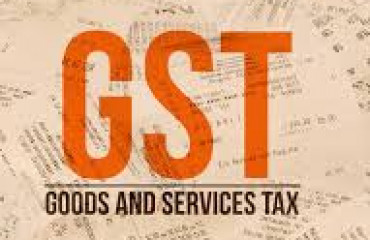
Federal indirect tax body, the Goods and Services Tax (GST) Council, will on Wednesday finalize the fine print of the indirect tax regime covering online gaming, casinos and horse racing and put in place ways to check any tax evasion. Mint takes a look at what to expect and why online gaming platforms are up in arms.
Federal indirect tax body, the Goods and Services Tax (GST) Council, will on Wednesday finalize the fine print of the indirect tax regime covering online gaming, casinos and horse racing and put in place ways to check any tax evasion. Mint takes a look at what to expect and why online gaming platforms are up in arms.
Federal indirect tax body, the Goods and Services Tax (GST) Council, will on Wednesday finalize the fine print of the indirect tax regime covering online gaming, casinos and horse racing and put in place ways to check any tax evasion. Mint takes a look at what to expect and why online gaming platforms are up in arms.
Why is the GST Council meeting today?
The GST Council, led by union finance minister Nirmala Sitharaman, will meet virtually to discuss and approve the amendments to Central GST (CGST) Act and the respective state GST (SGST) laws to give effect to the decision taken at its meeting last month regarding taxation of online gaming, casinos and horse racing.
The Council had decided to implement 28% tax on the full face value of online gaming bets, bringing the taxation regime on a par with casinos and horse racing. The language of the legislative changes has to be cleared by the Council. The nature of the amendments are broadly clarificatory in nature explaining that the intent of the law has always been to levy 28% tax on these sectors.
Gaming platforms, however, have been lobbying for a rethink on the decision. But as of now, there is no rethink being considered by the government.
To be sure, GST, being an indirect tax is levied on the full value of any transaction, unless any abatement is provided for to account for any non-taxable item included in the value. Legislative changes are expected to bring certainty to the taxation of these industries on the rate of tax and the base on which tax rate has to be applied.
Many online gaming companies, according to government officials, have been paying 18% GST on their margins, also called the gross gaming revenue, while the GST Council's decision is to levy 28% on the full face value of bets. Earlier, the Council had brought certainty to taxation of lotteries by providing for a 28% tax on the full-face value, replacing an earlier dual rate that depended on whether it was state-run or state-authorised lottery. GST Council is also expected to put in place checks and balances to prevent any side stepping of the tax liability by online gaming companies.
What is the urgency to amend the law?
The GST Council's approval of the fine print of the legislative changes will enable the central government to quickly move amendments to CGST Act. Given that the Parliament session is underway, the government may be able to move amendments in this session if Council clears all changes today.
Besides, the Centre is in the process of challenging in the Supreme Court a Karnataka High Court order that favoured the online gaming industry. Timely clarificatory amendments to the law may help in that proceeding.
How will online gaming companies get impacted?
Since GST on the face value of bets is an indirect tax and is collected from the consumers and paid to the exchequer, it should not directly affect the industry, although the consumer may find the tax burden on gaming going up. However, if gaming companies get tax demands for the past period, then they may not be in a position to recover that tax amount payable from numerous past consumers. Many of online gaming platforms are already under investigation. Also, any fall in interest from people to play online games could impact the attractiveness of online gaming companies for investors. Industry executives pointed out that online gaming is a sector where full foreign ownership is permitted and many of them have overseas investors.
What gaming platforms are asking for?
Some industry executives said 28% GST rate on the full value or deposit poses a severe threat to the online skill gaming industry's survival, particularly to startups currently in the research and intellectual property generation phase. Many of these companies are incurring losses, and the new GST structure could lead to their immediate collapse, they argue. They fear that users of online skill gaming will move to offshore platforms for entertainment. They also seek a distinction between online skill gaming companies and fantasy sports, saying the business models are different.
What happens to tax demands already raised?
The central government is set to challenge the Karnataka High Court decision in the case of Gameskraft Technologies Pvt. Ltd. which was in favour of the company. Any tax recovery is likely only after the apex court's decision on the matter, according to government officials. However, subsequent to the legislative amendments, companies may not be able to claim any regulatory ambiguity to pay lower taxes.
